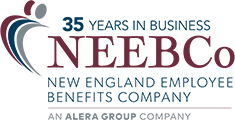News
IRS Section 139 Qualified Disaster Relief Payments and Coronavirus
Posted 05.05.20
As the impact from the COVID-19 pandemic intensifies, employers around the United States are looking for ways to provide relief from the outbreak’s financial burden on employees. One option available for employers from Section 139 of the Internal Revenue Code (the Code) is the Qualified Disaster Relief Payment program.
Section 139 was enacted in the aftermath of the September 11 terrorist attacks. This provision applies only when a qualified disaster occurs. When triggered, Section 139 overrides the general requirement to include payments to employees as gross income and allows employers to provide direct financial assistance to employees impacted by a qualified disaster without adverse tax consequences.
- Qualified disaster relief payments are not considered wages and are not reported as gross income.
- There is no limit on the amount of this benefit.
- Payments are not subject to nondiscrimination testing.
- Payments cannot be made if the expense is covered by insurance.
- Tax-free disaster relief does not include payments for lost wages, lost business income or unemployment compensation.
While the IRS has not issued specific guidance on the type of expenses that may be reimbursed tax-free in the context of the COVID-19 national pandemic (as compared to a natural disaster), reimbursable expenses must continue to be related to reasonable necessities. What is reasonable and necessary may take many forms during the coronavirus pandemic and may include:
- Medical expenses not covered by insurance (for example, copays, deductibles, over-the-counter medicines, cleaning supplies);
- Alternative commuting means in lieu of mass transit;
- Caregiver and domestic service expenses;
- Expenses associated with setting up or maintaining a home office such as enhanced internet connections, computer monitors, laptops, printers or office supplies (even if such expenses would not otherwise satisfy the home office deduction requirements);
- Expenses incurred for child care and tutoring services;
- Expenses to enhance mental health and physical well-being, such as meditation apps and home health fitness;
- Funeral expenses;
- Housing for additional family members (for example, transportation and living expenses for college students returning home, including duplicative meal expenses); and
- Increased expenses associated with being quarantined at home (for example increased utilities and home office expenses).
Refer to the attached Compliance Overview for additional guidance and contact your NEEBCo representative with questions.
IRS Section 139 qualified disaster relief payments and Coronavirus
